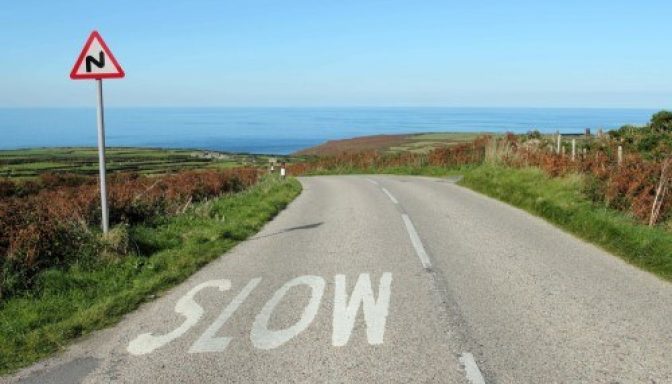Do you remember the usual morning rush? Get out of the house; into the car; accelerate where the traffic eases; brake heavily when it backs up again; stop at school; let the kids out; accelerate; brake; get to the office; switch on the computer; make a cuppa; take a deep breath; start the working day; and then reverse it all again a few hours later. Quite literally, overnight, it all stopped.
Although many people have found home-working and home-schooling stressful, the slower pace of our lives has been one of the positives that have offset these challenges for many people. The lack of travelling – and lack of vehicles associated with this – has led many of us to explore the places near our homes in ways we never dreamed of doing before. People have felt safer walking, have taken family bike rides, and generally travelled more slowly than has been seen in generations.
In the midst of this, and perhaps unnoticed by many, the Senedd (Welsh Parliament) voted to reduce the default speed limit in Wales from the current 30mph to 20mph. With cross-party support and a substantial majority (45 for, versus six against), 2023 will see a global first, countrywide change to reduce speeds where people live, work, play and learn.
My primary interest in this is the potential safety benefits – at lower speeds, the risk of crashing is reduced, along with the risk of more severe injury. This is particularly important in the context of both Road Safety Week and the ongoing pandemic. Managing the pandemic requires actions such as social distancing – to ensure the NHS has the capacity and resources needed to respond to cases of COVID-19, and prevent unnecessary burden on the NHS. Reducing speed limits is also crucial to reducing the burden on our NHS: slower speeds means fewer crashes and fewer more severe crashes resulting in death and serious injury.
COVID-19 will be with us for some considerable time yet and even when it is being more effectively managed, the NHS will need time to recover. Dealing with the backlog of delayed treatment will take significant NHS capacity. Preventing unnecessary burden on the NHS will be needed for many years to come.
The actions of the Senedd will make a significant contribution to the recovery of the Welsh NHS, and the Welsh economy, from COVID-19. As well as directly reducing crashes, there will be wider benefits around encouraging physical activity, improving air quality, reducing community severance, loneliness and isolation, and encouraging small business development.
Dr Sarah Jones
Consultant in environmental public health with Public Health Wales



